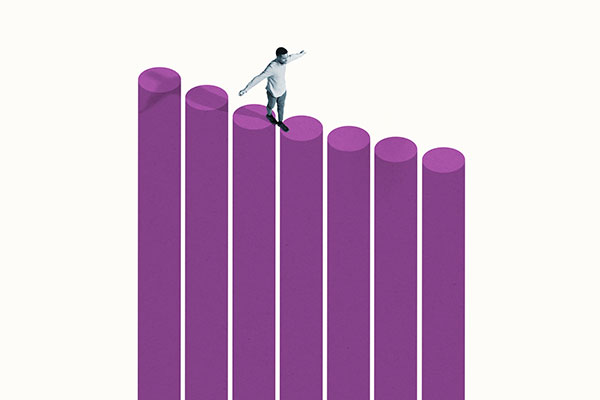Interest rates preview: what could a 14th rate hike mean for personal finances?
1st August 2023 16:26
by Myron Jobson from interactive investor
interactive investor's Myron Jobson considers the impact on borrowing, savings and mortgages.

Commenting, Myron Jobson, Senior Personal Finance Analyst, interactive investor: “All eyes are on Bank of England policymakers who are odds-on to press ahead with yet another increase in interest rates on Thursday.
“Britons celebrated a small inflation win in June, which saw a lower-than-expected rise in prices. Core inflation remained sticky at an annualised 6.9%, but fell from a 31-year high of 7.1% in May. The Bank of England has had to lift interest rates to the highest level since 2008 so far to do it – so clearly more needs to be done to tame the inflation beast.
“The recent uptick in unemployment and slowing jobs growth will not counteract strong pay pressure – with wages still higher than what the cental bank considers amenable with meeting its 2% inflation target. So, while a further hike in interest rates appears to be written in the stars, the burning question is: will the Bank of England be more inclined to do too much [rather] than too little in its ongoing quest to strike a balance between controlling price stability and the cost of borrowing? Both of which have a telling impact on personal finances."
What it means for mortgages
"While the Bank of England doesn’t set mortgage rates, its decisions influence how they move. Lenders have already anticipated a hike in interest rates, meaning much of this is already priced into fixed-rate deals. But the 2.2 million homeowners on variable rate mortgages, which are tied to the Bank of England’s base rate, will continue to feel the full brunt of the expected increase in interest rates as part of the UK’s central bank’s efforts to drag inflation closer to its 2% target.
"New figures by Moneyfacts shows that mortgage rates have already started to edge higher, a typical two-year fixed mortgage rate is now 6.85%, and it is 6.37% for five-year fixes. The fact remains that we’ll need to see a significant and sustained fall in inflation before mortgage rates move meaningfully lower."
Savings
“While an uptick in interest rates means that borrowing is more expensive, the silver lining is savings rates are likely to tick higher. There might be a bit more urgency among banks and building societies to pass on the base rate rise to their savings products this time around as the Financial Conduct Authority (FCA) has recently gained new powers to take robust actions against those offering unjustifiably low rates. The City watchdog has wasted no time in exercising its new powers, gained under the Consumer Duty, by setting out a 14-point plan to make sure that interest rate rises are passed on to savers appropriately.
“It is important to bear in mind that buying power of cash savings continues to be eroded by inflation which, at 7.9%, far outstrips the market-leading savings rates. Those who can afford to put money away for five years or more should consider investing for the potential of long-term inflation-beating returns that far outstrip savings rates.
Borrowing
“When it comes to borrowing, common debt arrangements such as a personal loan or car financing won’t usually be affected by changes to interest rates because a fixed rate of interest is typically agreed before the loan is taken out. However, the rate of interest applied to credit cards and overdrafts could go up - even though they are not directly linked to the Bank of England base rate.”
These articles are provided for information purposes only. Occasionally, an opinion about whether to buy or sell a specific investment may be provided by third parties. The content is not intended to be a personal recommendation to buy or sell any financial instrument or product, or to adopt any investment strategy as it is not provided based on an assessment of your investing knowledge and experience, your financial situation or your investment objectives. The value of your investments, and the income derived from them, may go down as well as up. You may not get back all the money that you invest. The investments referred to in this article may not be suitable for all investors, and if in doubt, an investor should seek advice from a qualified investment adviser.
Full performance can be found on the company or index summary page on the interactive investor website. Simply click on the company's or index name highlighted in the article.